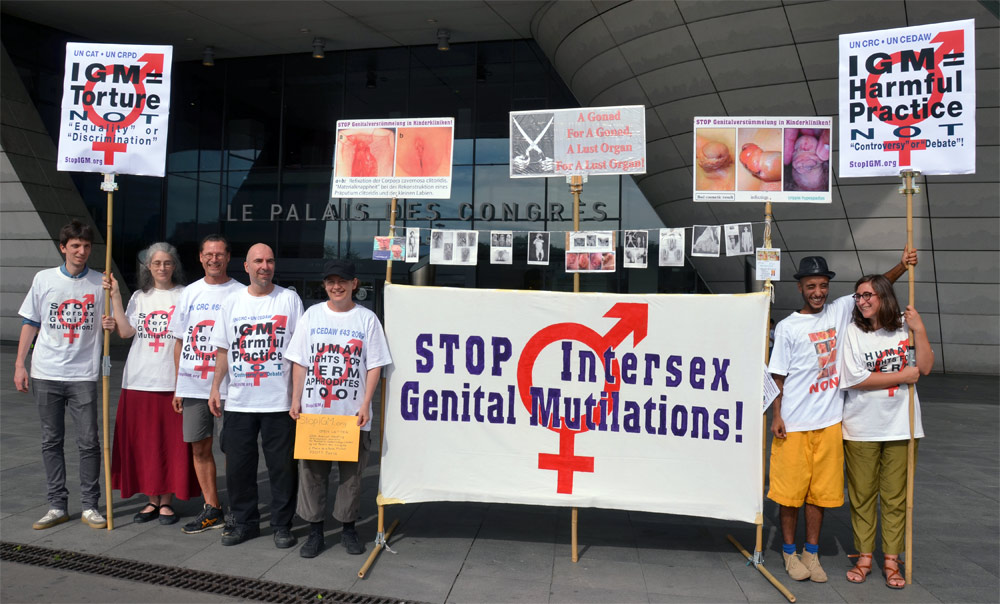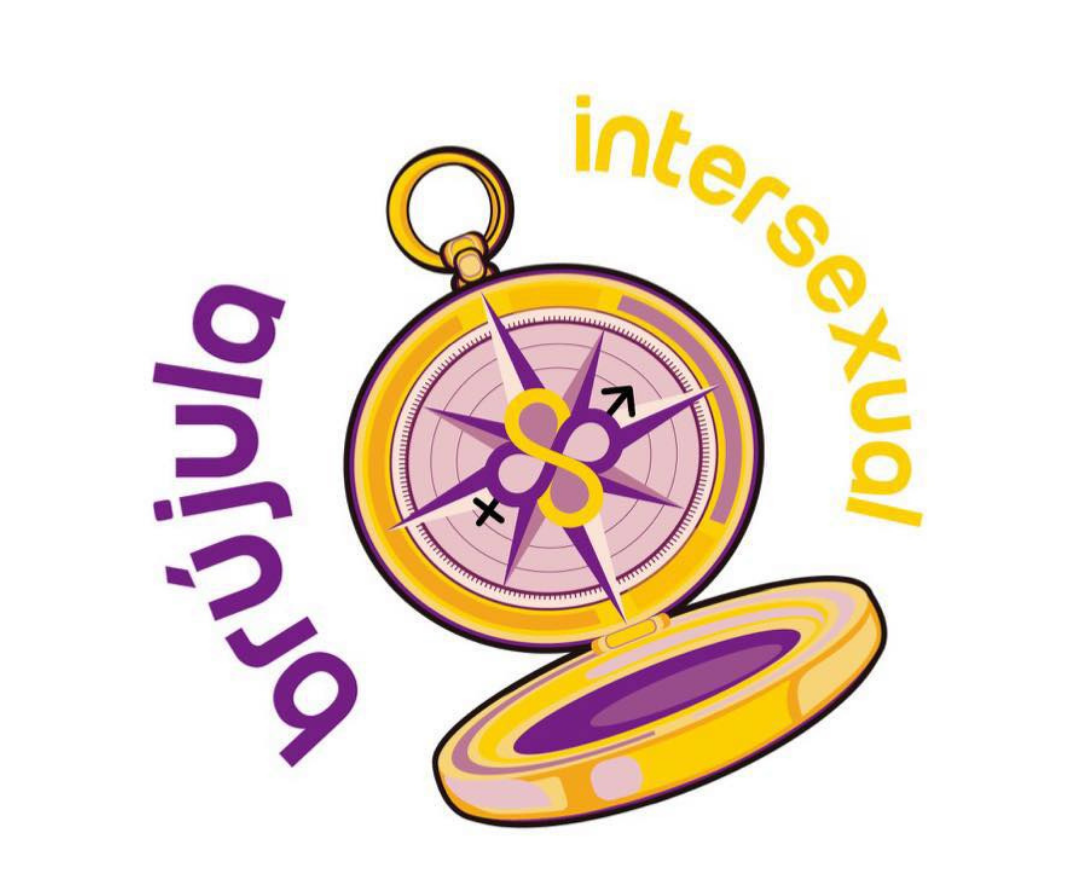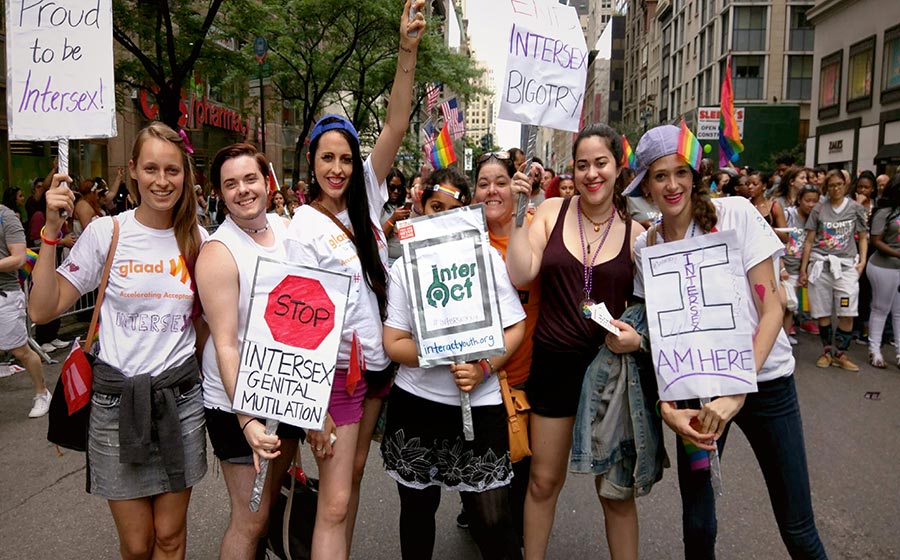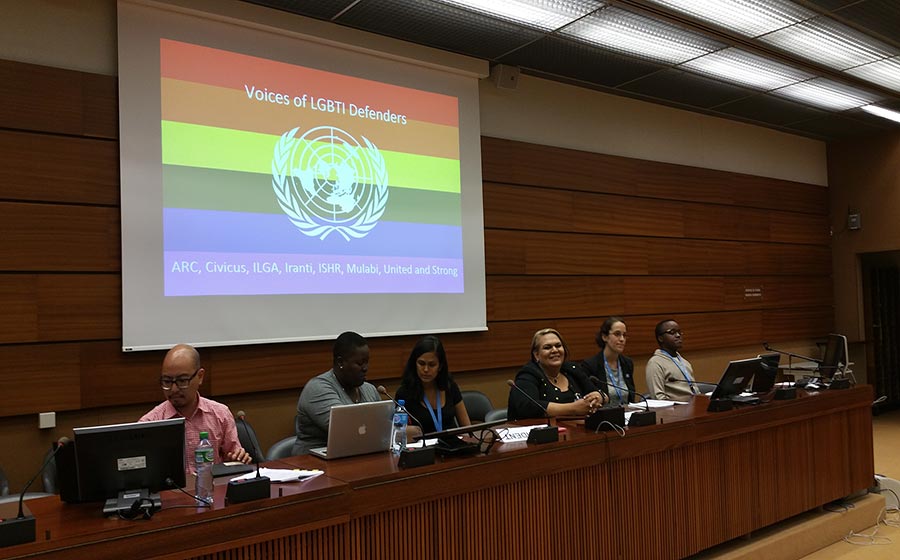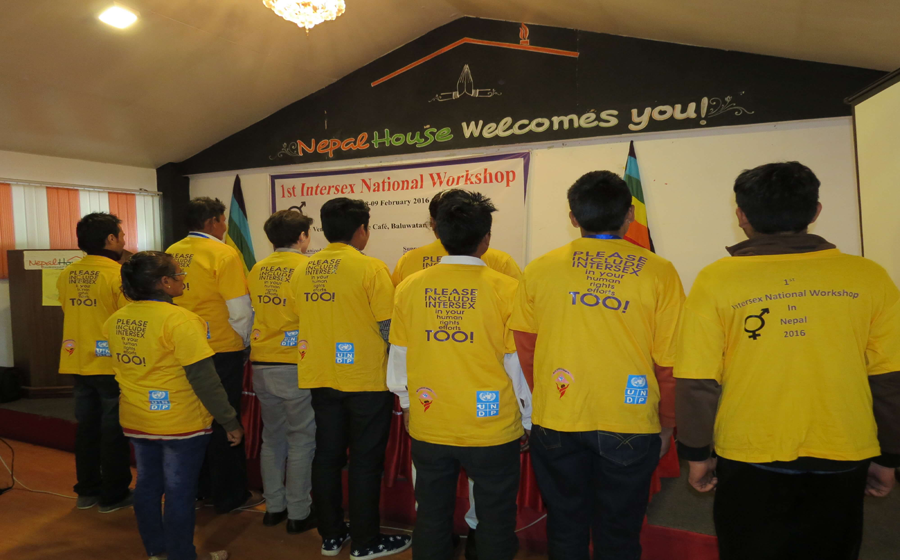Laura Inter was influenced by its own history and their own experiences as an intersex person and saw the need to share information on intersex issues and improve living conditions of intersex people.
Foundation
Laura Inter, its founder, was born with an intersex body, lived difficult experiences during her life, particularly in hospitals. In addition, much of her life believed that in the world there were no other people like her, for a long time she looked for a safe place where she could share her fears, her experiences, a place that would give her the tools to begin to heal and continue. Go ahead, but no matter how hard he looked, he did not find that place in his country, or any other Spanish-speaking space. These kinds of places are never created alone, nor do they arise out of nowhere, like this, with patience, with love, with determination … little by little that place began to take shape, and on October 27, 2013 – a day after Intersex Visibility, founded Brújula Intersexual.
The initial objective was to make intersex experiences visible, for this it was central to disseminate information in Spanish about the right to autonomy and bodily integrity of intersex people. The most relevant activities, and that have been maintained since its foundation, are to generate a community of peers and offer emotional support to intersex people and their families.
Mission
Our mission is to denounce violations of the right to self-determination, integrity and bodily autonomy that affect intersex people. Our main objective is to transform medical practices and social representations of intersex bodies and to contribute to the critical reflection of sex and gender; In this way, we influence the profound transformation of gender relations by challenging the naturalization of bodies and sexual stereotypes. The group’s activities are of dissemination, information, visibility and transformation of the problems faced by intersex people. For this we carry out various activities that have an impact on different levels of social life: we produce popular articles and academic texts; didactic materials; we translate relevant information into Spanish; We advise strategic groups, state and federal institutions; we participate in the media: publications, interviews; we give workshops and talks; We collaborate in the preparation of documents that affect the transformation of public policies; We collaborate in the presentation of reports on the situation of intersex people before various international human rights organizations.
From the beginning, our mission involved generating community and providing emotional support, we work primarily with groups of intersex people in our country and in other Spanish-speaking countries, and the world.
//
*** En Español***
Fundación
Laura Inter, su fundadora, nació con un cuerpo intersexual, vivió experiencias complicadas durante su vida, en particular en los hospitales. Además, gran parte de su vida creyó que en el mundo no había otras personas como ella, por mucho tiempo buscó un lugar seguro en el que pudiera compartir sus miedos, sus experiencias, un lugar que le brindara las herramientas para comenzar a sanar y seguir adelante, pero por más que buscó, no encontró ese lugar en su país, ni ningún otro espacio de habla hispana. Ese tipo de lugares nunca se crean solos, ni surgen de la nada, así, con paciencia, con amor, con determinación… poco a poco ese lugar comenzó a tomar forma, y el 27 de octubre de 2013 —un día después del Día de la Visibilidad Intersexual, fundó Brújula Intersexual.
El objetivo inicial fue visibilizar las experiencias intersexuales, para ello fue central difundir información en idioma español acerca del derecho a la autonomía e integridad corporal de las personas intersexuales. Las actividades más relevantes, y que se han mantenido desde su fundación, son generar una comunidad de pares y ofrecer apoyo emocional a personas intersexuales y sus familias.
Misión
Nuestra misión es denunciar las violaciones al derecho a la autodeterminación, integridad y autonomía corporal que afectan a las personas intersexuales. Nuestro principal objetivo es transformar las prácticas médicas y representaciones sociales de los cuerpos intersexuales y coadyuvar a la reflexión crítica del sexo y del género; de esta manera incidimos en la transformación profunda de las relaciones de género al interpelar la naturalización de los cuerpos y estereotipos sexuales. Las actividades del grupo son de difusión, información, visibilización y transformación de los problemas que enfrentan las personas intersexuales. Para ello realizamos actividades diversas que tienen incidencia en distintos planos de la vida social: producimos artículos de divulgación y textos académicos; materiales didácticos; traducimos al español información relevante; asesoramos a grupos estratégicos, instituciones estatales y federales; participamos en medios de comunicación: publicaciones, entrevistas; impartimos talleres y charlas; colaboramos en la elaboración de documentos que inciden en la transformación de las políticas públicas; colaboramos en la presentación de informes sobre la situación de las personas intersexuales ante diversos organismos internacionales de derechos humanos.
Desde un inicio nuestra misión implicó generar comunidad y brindarle apoyo emocional, trabajamos primordialmente con grupos de personas intersexuales en nuestro país y en otros países de habla hispana, y del mundo.

